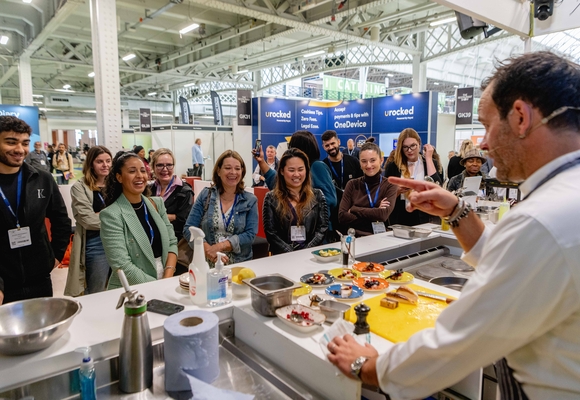- 18-24 year olds cooking more from scratch than pre-pandemic
- The number of 18-24 year olds doing regular top-up shops has shrunk by 75%
- Those of us ordering takeaways for delivery has risen from 45% to 56%
A survey of 1200 conducted by shopper insights agency Shoppercentric found that 35% of the younger demographic have been cooking more from scratch than pre-pandemic, whilst 26% have started or are doing more batch cooking. It is also the age group that is most likely to have started doing more home baking and they have been consuming more fresh fruit and vegetables than any other age group.
Indeed, the latest figures in Shoppercentric’s Stock Take 2021 report show a third of all age groups now cooking from scratch more than before the pandemic: almost a quarter (24%) cooking or eating healthier meals and a similar number doing more home baking. It’s not all about healthy eating though: the number of us getting takeaways via click and collect has risen from 29% in May last year to 42% now, and those of having takeaways delivered has similarly risen from 45% in May to 56% now.
The shopping habits of the 18-24 year olds have also changed.
“Research that we conducted in January 2020 showed that 16% of 18–24-year-olds shopped by doing regular small top-up shops,” explains Jamie Rayner, Managing Director of Shoppercentric.
“However, this has now shrunk by 75% to a mere 4%. It’s clear that this younger age group has had to significantly change its behaviour throughout the pandemic. It’s had a psychological impact on them too with data showing that 32% of 18–24-year-olds are feeling ‘extremely’ or ‘very’ anxious/distressed. This is 14% higher than the average of all age groups.”
In contrast, though, over half of this younger age group isn’t finding life too bad. Qualitative research conversations with younger shoppers confirmed that the initial desperate desire to do things prohibited by lockdown restrictions has gradually been replaced by a growing appreciation for the smaller, more essential things in life: such as walking and being outside, picking up and playing a guitar for the first time, spending more time with family, or even becoming more organised. These are all contributing to helping some of the younger cohort feel more content.






